Since its establishment over a century ago in 1913 as a Jesuit school, Sophia University has steadfastly embodied its mission: "Men and Women, For Others, With Others."
"I think the meaning of nurturing and bringing up young people that can contribute to the global society while retaining our mission has become much clearer today than in the past," said university President Yoshiaki Terumichi on the current conditions of the school, its students and graduates.
Although Sophia has long been known for its notable globalization activities, "what is important in our academic activities as of today is for each student to become a leader in the global arena while being socially ethical. They also should have solid judgment standards on what is good or bad," he said.
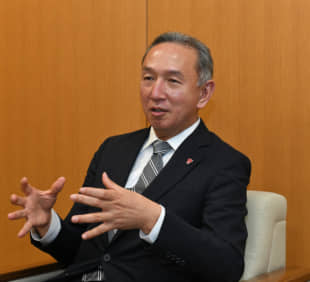
From a global perspective, overall society is not individualistic, but complex and intertwined. "Our goal is thus to prepare and provide a diverse learning environment that nurtures personnel diversity. Such a stance allows our graduates to work in various international organizations such as the U.N., as well as NGOs and so on," said Terumichi.
Sophia's Center for Global Education and Discovery plays a vital role in providing numerous dynamic overseas learning opportunities that contribute to helping each student develop a truly global perspective.
"What I must stress here is that it isn't enough for each student to just visit and go from one country to another," said Terumichi. The important point is to provide an external experience for each person that makes them think deeply and broaden their perspective. That is why each program of the center is carefully planned and designed by the respective staff and professors, he added.
"Put another way, every program is a proud handmade outcome of all those involved, and the fruit of many hours of hard work. Of further mention is that upon each occasion, students from the first to the fourth year pursuing different majors are selected as participants," he said. "In that way, academic diversity is maintained, leading to dynamic, multifaceted discussions ranging from societal, legal, economic and other aspects on many issues such as poverty in an African country."
Over the years, the center's programs have been received extremely well, and the first reaction from program participants has often been gratitude. "They thank us for providing a meaningful learning opportunity that opened their eyes to another world. I have seen many young people change right on the spot when provided the proper stimulus like this program," he said. As such, Terumichi has heard some first-year students participating in the program even speak of their ambitions to start their own businesses in poverty-stricken areas to make their own contributions.
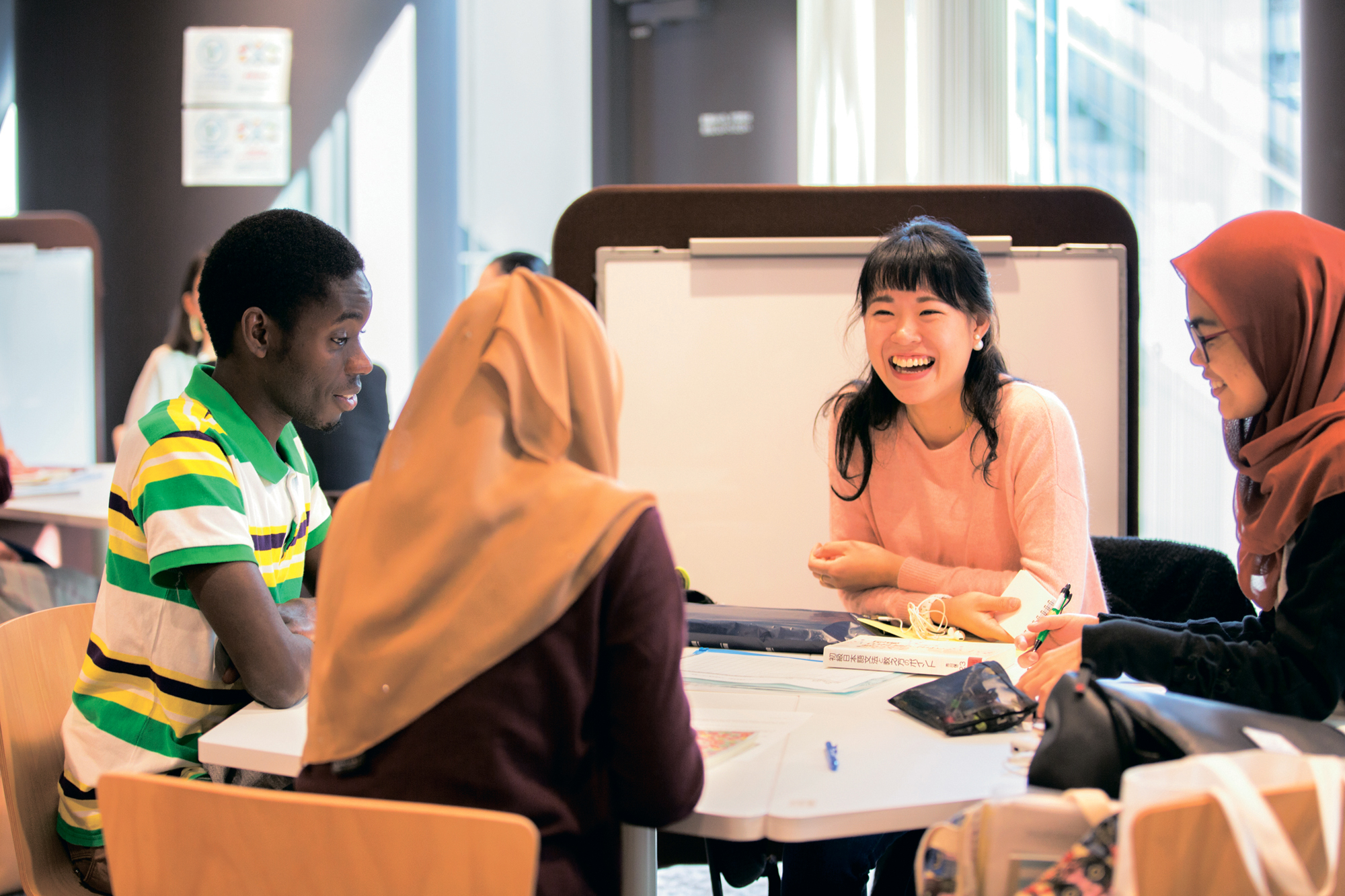
Beyond the classroom
Terumichi points out, however, that catering to the globalization needs of current Sophia students is not enough. "That is the reason why whenever I have the chance to visit a high school to give a talk, I go down to the floor to have discussions and listen to the true voices and thoughts of the students. I also exchange views with the teachers and staff to obtain first-hand information on what is happening and what they expect in the education environment on a higher level, including our school," he said.
The results of such hearings have been reflected upon establishing the Sophia Program for Sustainable Futures (SPSF), a new degree program aiming to raise the awareness standard of the youth toward local and global sustainability. SPSF will start accepting students from the autumn semester of 2020, and all lectures will be conducted in English.
"This is because English is vital for communicating in the global community. Moreover, in an era where all areas of society are correlated and respond to each other, we must be sensitive toward everything that surrounds us. That is the reason why at SPSF, six courses will be offered, including economics, sociology, education and media," he said. "Put another way, SPSF is a place that offers a crossover approach covering many fields, while positioning sustainability and global issues at the core. We also hope to ensure academic diversity there by attracting various students from many other countries outside Japan."
Sophia also holds a unique stance in providing its students with opportunities to study abroad. Carefully monitoring the effectiveness of each exchange program and taking full advantage of the Jesuit network that spans the entire globe, the university currently has exchange programs with 300 colleges and universities around the world.
Terumichi explained that students in any major can learn technical skills on campus, but that doesn't necessarily correlate to an international mindset. Through the Social Engagement Program (SEP), students are able to earn credits while studying abroad in areas beyond their comfort zone; locations such as Micronesia, northern Thailand, Africa and Estonia were selected to foster open-mindedness among students by giving them a chance to experience cultures and lifestyles completely different from their own.
"For example, by finding people speaking a completely different language or those who are deprived the luxury of having a hot shower, the students may come to realize the true size and diversity of the world they belong to today," he said. "They also may become aware of how different values exist outside Tokyo and Japan."
These perspectives may broaden even further by visiting the Japan International Cooperation Agency's official development assistance sites, engaging in discussions with local students and participating in homestays.
"The concept of happiness may be different in the up-and-coming nations, and the rules of the advanced nations may not always apply," Terumichi said. "That is how SEP provides an environment for the students to think and learn what globalization really means. How they use the provided opportunity is up to them, of course."
However, he did add that he would like the programs to encourage a symbiotic relationship between students and the places they travel to. "Our genuine hope is that each SEP participant will come to scrutinize what can be done to ensure the genuine happiness of the local people they meet in the program," said Terumichi.
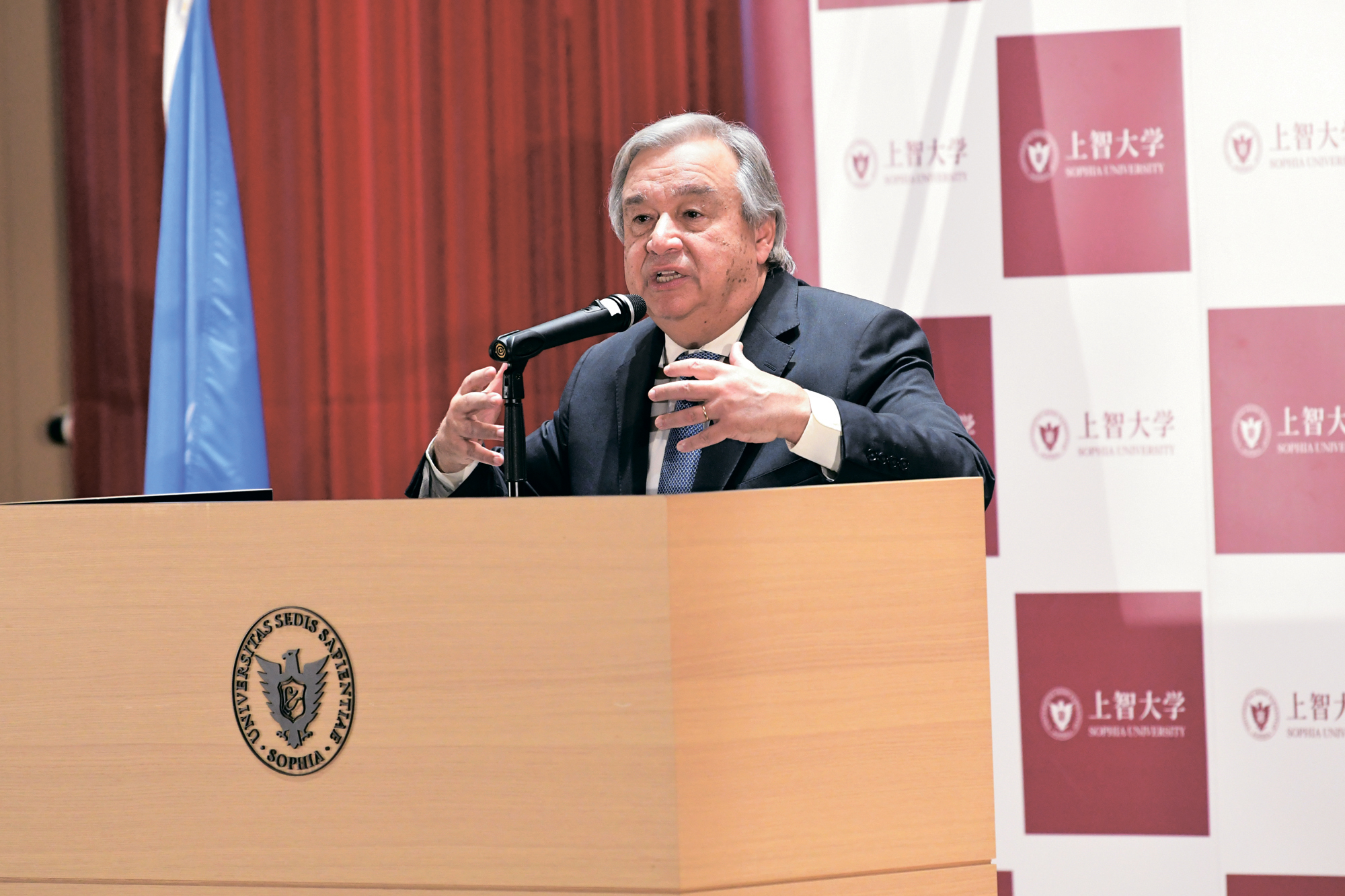
Close UN ties
Another globally focused opportunity Sophia takes part in involves its close relationship with the U.N. As a participating university in the United Nations Academic Impact program, Sophia has held a regular event called "United Nations Weeks" since 2014. This year's event runs from June 3 to 20 and will spotlight the U.N.'s Sustainable Development Goals.
Highlights include various lectures, symposiums, discussions and career sessions on issues covering gender, crime, international collaboration, poverty, conflict and war, among others.
"I think the U.N. Weeks has already become a well-established event that attracts a large audience, including high school students and the general public, in addition to those at Sophia. It provides us the opportunity to think together about the world and our future in relation to the activities of the U.N.," Terumichi said. "Furthermore, to further nurture the global perspective of our students, we have come to establish a close relationship with numerous organizations of the U.N., including the WFP (World Food Programme) and FAO (Food and Agriculture Organization)."
In addition to U.N. Weeks, Sophia holds various seminars and lectures featuring prominent international figures on a regular basis. U.N. Secretary-General Antonio Guterres, former ambassadors to Japan, China's Cheng Yonghua and the U.S.'s Caroline Kennedy are just a few noteworthy figures who have visited Sophia.
"Thanks also to requests from the Ministry of Foreign Affairs, we continue to receive distinguished visitors from overseas countries and institutions to hold meaningful dialogues and exchanges, almost every month," said Terumichi.
A global network
As an academic institution at the forefront of globalization, Sophia is also striving to build a network with other schools around the world. "In an era of extreme change, we must have both a macroscopic bird's-eye view, as well as a microscopic aspect that focuses on the details of various issues that surround us. In that context, international collaboration requires both depth and width, and we must have a clear mind to deeply scrutinize each issue. Bearing this in mind, Sophia's staff, me included, visit many schools outside Japan to build understanding and trustworthy relationships. Such efforts have contributed to raise the recognition standard and presence of Sophia in the global academic arena," Terumichi said.
On an international level, Sophia has established its name, understanding and trust among overseas countries such as Cameroon and Cote d'Ivoire, as well as regions including Central and South America, as a result of the many years of global activities pursued by its students, graduates, professors and staff.
As for the future, "I look forward to furthering the reputation of Sophia in Japan, as well as in many other foreign countries as a fine institution with a global mindset. In fact, such thinking synchronizes with the activities of (former president) Yoshiaki Ishizawa. Ishizawa worked to educate and assist the people of Cambodia to restore Angkor Wat. He did not approve of a quick fix by foreign nations or external institutions. Instead, he argued that no matter how long it might take, such a valuable historic asset should be restored and preserved by the hands of the local people themselves so that they could take pride in their work and pass it down to generations to come.
"Ishizawa's action was taken around the 1980s when Cambodia was still struggling to stand on its own feet after many years of Pol Pot's dictatorship and internal strife. The country was in dire poverty. But despite such conditions, Sophia welcomed Cambodian students to study and acquire degrees at our school. Eventually, those students rose to high positions in local governments after returning home. They appreciated the many years of help and support from Sophia. Today, we continue the Angkor Wat restoration by retaining Ishizawa's mind, spirit and stance. This is how Sophia came to be a well-known institution in Cambodia, winning much trust and respect of the local people," Terumichi said.
Though the ideal and procedure of the above project is time-consuming and little recognized, Terumichi considers such ideas of building human resources, not only in Japan, but also in other countries, indispensable. "I think such an approach is the key to making Sophia more global in a true sense. After all, by doing so, we can continue embodying and remaining true to our mission since our establishment over a century ago: Men and Women, For Others, With Others," he said.



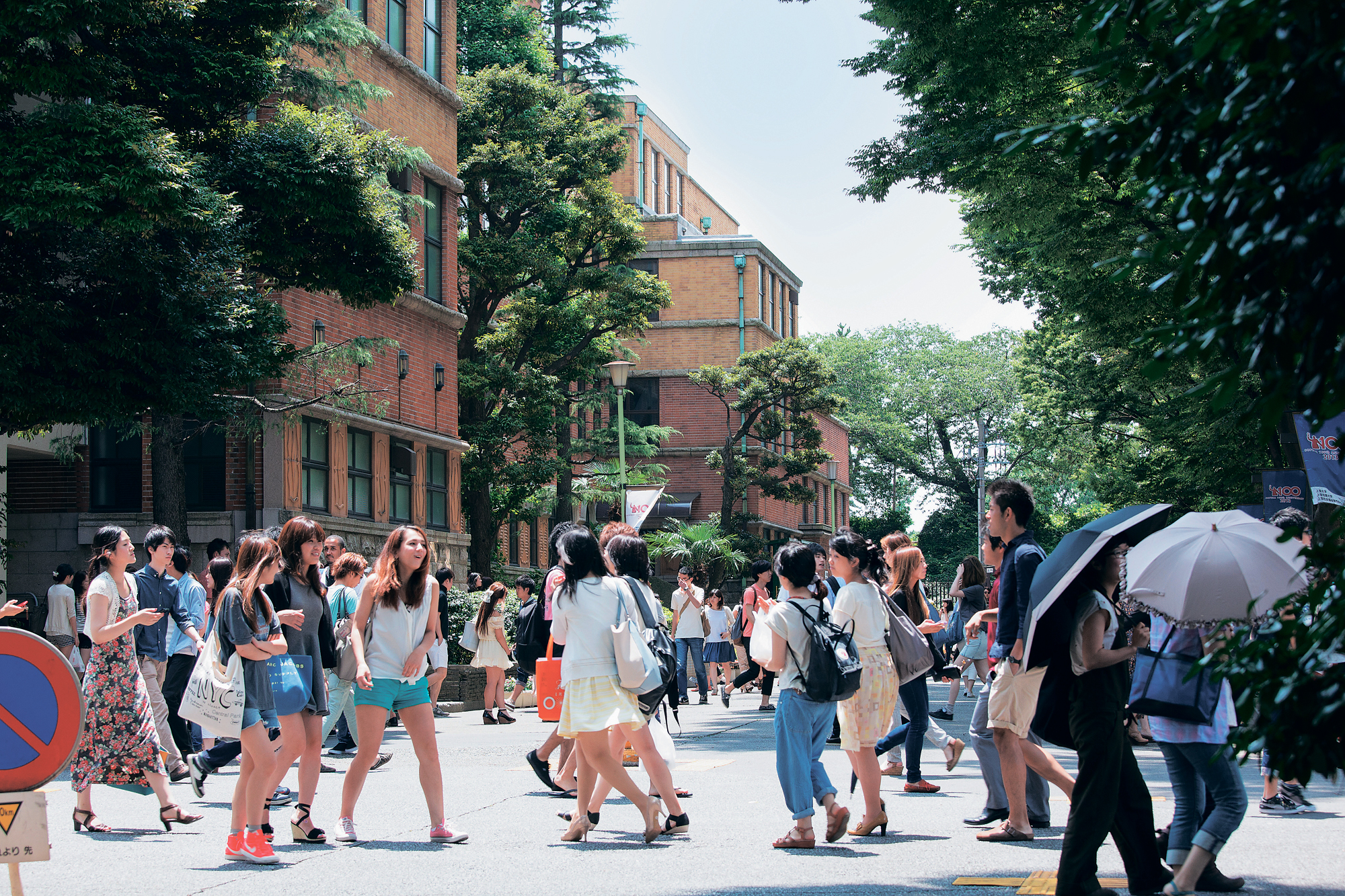
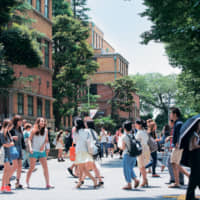
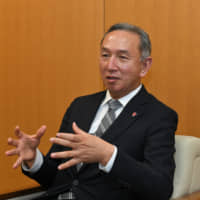
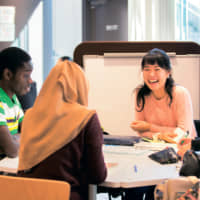
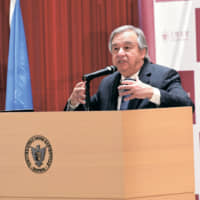
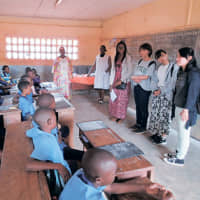
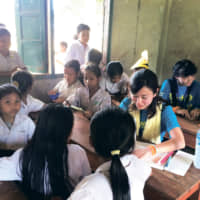















With your current subscription plan you can comment on stories. However, before writing your first comment, please create a display name in the Profile section of your subscriber account page.